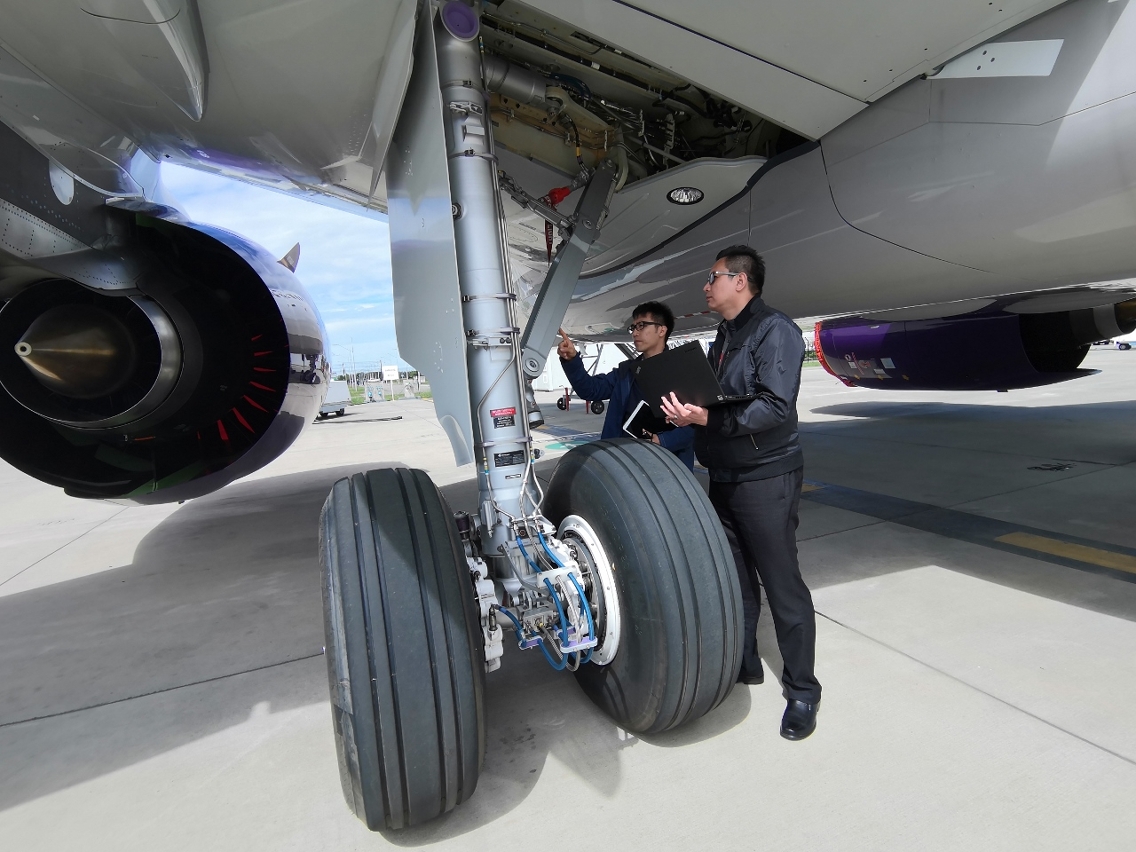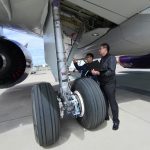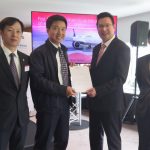 The Civil Aviation Authority conducted the acceptance check for the first Airbus A320neo aircraft applied by Air Macau for registration in Macao.
The Civil Aviation Authority conducted the acceptance check for the first Airbus A320neo aircraft applied by Air Macau for registration in Macao.
The Civil Aviation Authority of Macao SAR (AACM) has completed the acceptance check for the first Airbus A320neo aircraft applied by Air Macau for registration in Macao. The Authority issued the Certificate of Airworthiness and the Certificate of Registration for this new aircraft to Air Macau on 25 April 2019 and concluded all other necessary work for the registration of this aircraft in Macao today. This aircraft is the first of the “neo” type registered in the territory.
In December last year, Air Macau filed in with AACM their application for introducing three Airbus A320neo aircraft to their fleet in 2019. In the approval process for the registration of an aircraft, AACM carries out a series of inspections to ensure that the aircraft fulfills the Macao Aviation Requirements. Having completed the initial phase of checking all necessary documents for the first “neo” aircraft, AACM appointed two inspectors to go to Toulouse France to conduct the on-site acceptance check of the aircraft. The on-site checks comprised thorough review of the aircraft manufacturing record, checking of the aircraft body and the configurations, and assessment of the test flights. On 26 April 2019, AACM issued the Certificate of Airworthiness and the Certificate of Registration to Air Macau for the aircraft, having confirmed that the aircraft is fully compliant with the Macao Aviation Requirements. All procedures regarding the registration of the aircraft in Macao were concluded today. The registration mark of this new aircraft is B-MCK.
Ensuring the airworthiness of the aircraft is an integral part of the safety oversight responsibility of AACM. The Authority takes a stringent manner in processing the application for the registration of an aircraft in Macao and carries out continuous monitoring of all Macao registered aircraft. For the other two “neo” aircraft which are scheduled to arrive in Macao in the middle of this year, AACM will also send inspectors to Toulouse to conduct the acceptance check.
The advantages of the “neo” engines over the current engines of the original A320 family include: being 15% more fuel efficient, reducing CO2 significantly, reducing noise levels and introducing lower maintenance costs.



